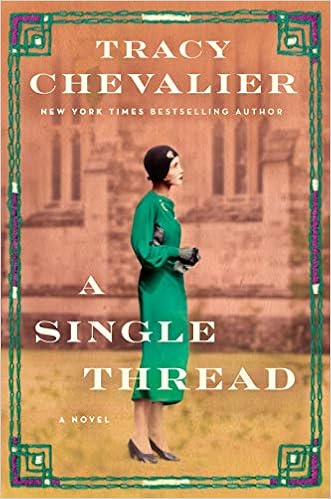Best
Canadian Fiction
The Testaments by Margaret Atwood: https://schatjesshelves.blogspot.com/2019/10/review-of-testaments-by-margaret-atwood.html
The Innocents by Michael Crummey: https://schatjesshelves.blogspot.com/2019/10/review-of-innocents-by-michael-crummey.html
Our Homesick Songs by Emma Hooper: https://schatjesshelves.blogspot.com/2019/02/review-of-our-homesick-songs-by-emma.html
This Little Light by Lori Lansens: https://schatjesshelves.blogspot.com/2019/08/review-of-this-little-light-by-lori.html
Bina by Anakana Schofield:
https://schatjesshelves.blogspot.com/2019/05/review-of-bina-by-anakana-schofield-new.html
Five Wives by Joan Thomas:
https://schatjesshelves.blogspot.com/2019/11/review-of-five-wives-by-joan-thomas.html
Best
American Fiction
Miracle Creek by Angie Kim:
https://schatjesshelves.blogspot.com/2019/05/review-of-miracle-creek-by-angie-kim.html
Rabbits for Food by Binnie Kirshenbaum: https://schatjesshelves.blogspot.com/2019/11/review-of-rabbits-for-food-by-binnie.html
A Woman is No Man by Etaf Rum:
https://schatjesshelves.blogspot.com/2019/04/review-of-woman-is-no-man-by-etaf-rum.html
The Island of Sea Women by Lisa See: https://schatjesshelves.blogspot.com/2019/07/review-of-island-of-sea-women-by-lisa.html
Olive, Again by Elizabeth Strout: https://schatjesshelves.blogspot.com/2019/10/review-of-olive-again-by-elizabeth.html
Man of the Year by Caroline Louise Walker: https://schatjesshelves.blogspot.com/2019/07/review-of-man-of-year-by-caroline.html
Best
Fiction from the United Kingdom
Milkman by Anna Burns: https://schatjesshelves.blogspot.com/2019/01/review-of-milkman-by-anna-burns.html
The Italian Teacher by Tom Rachman: https://schatjesshelves.blogspot.com/2019/01/review-of-italian-teacher-by-tom-rachman.html
From a Low and Quiet Sea by Donal Ryan: https://schatjesshelves.blogspot.com/2019/01/review-of-from-low-and-quiet-sea-by.html
Meet Me at the Museum by Anne Youngson: https://schatjesshelves.blogspot.com/2019/01/review-of-meet-me-at-museum-by-anne.html
Best
International Fiction
My Sister, the Serial Killer by Oyinkan Braithwaite: https://schatjesshelves.blogspot.com/2019/02/review-of-my-sister-serial-killer-by.html
The Geography of Friendship by Sally Piper: https://schatjesshelves.blogspot.com/2019/02/review-of-geography-of-friendship-by.html
* * * * * * * * * * * * * * * * * * * * * * * * * * * * * * * * * * *
* * * * * * * * * * * * * * * * * * *
*I did read some books published prior to 2018 and of those, I’d
recommend the following:
Go, Went, Gone by Jenny Erpenbeck: https://schatjesshelves.blogspot.com/2019/04/review-of-go-went-gone-by-jenny.html
Cal by Bernard MacLaverty:
https://schatjesshelves.blogspot.com/2019/03/review-of-cal-by-bernard-maclaverty.html
The Vanishing Act of Esme Lennox by Maggie O’Farrell: https://schatjesshelves.blogspot.com/2019/08/review-of-vanishing-act-of-esme-lennox.html






